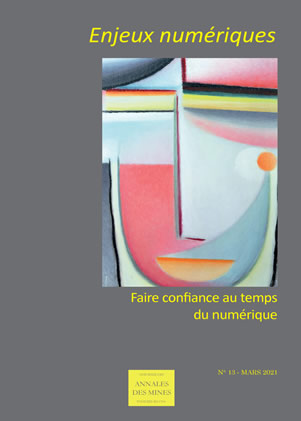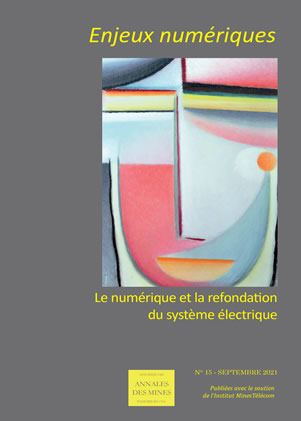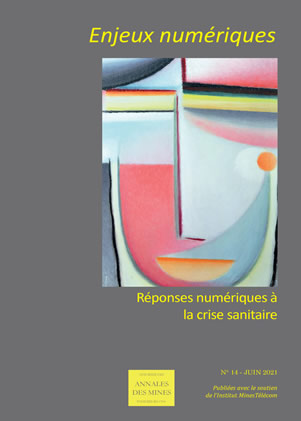| |

Voir le numéro complet
|
|
 N° 13 - March - Confidence and trust in the digital era N° 13 - March - Confidence and trust in the digital era
issue editor : Côme BERBAIN and Bertrand PAILHÈS
 read summary and abstracts read summary and abstracts
Introduction :
Côme BERBAIN and Bertrand PAILHÈS
“Confidence!” “Trust!” During a period of apparently tenser social relations as the references inherited from industrial society are disappearing and as digital technology is becoming a major factor in the transformation of modern societies, these are two catchwords to which few political leaders or experts can stake out a claim. The rollout of the information society over the past thirty years has led to major progress, such as the composition of the Wikipedia encyclopedia by thousands of anonymous contributors without personal ties, the new forms of technology based on a global scientific consensus, and software “open” to anyone.
In the digital realm, confidence or trust are poorly defined concepts referring to diverse interests, depending on whether we are talking about forms of technology, contents, or the persons contributing to them. In many cases, confidence is mainly a question of the rules, procedures and standards that everyone finds acceptable; and these, when upheld, lay the grounds for all parties to sincerely and safely take part in online activities. Some of these procedures rely on special techniques, like asymmetric cryptography; but others, on the practices of organizations and individuals. While “netiquette” was, at the end of the 20th century, intended to introduce civility in cyberspace, recent online developments are characterized by an increase in abuse and hate, and the spread of conspiracy theories, as the magic of instantaneous access has turned “truth” into something relative. This trend is evidence of the fragility of the means used to boost confidence and trust in digital technology. This polysemous topic evinces the very ambivalence of technology’s impact.
 read more read more
|
|





